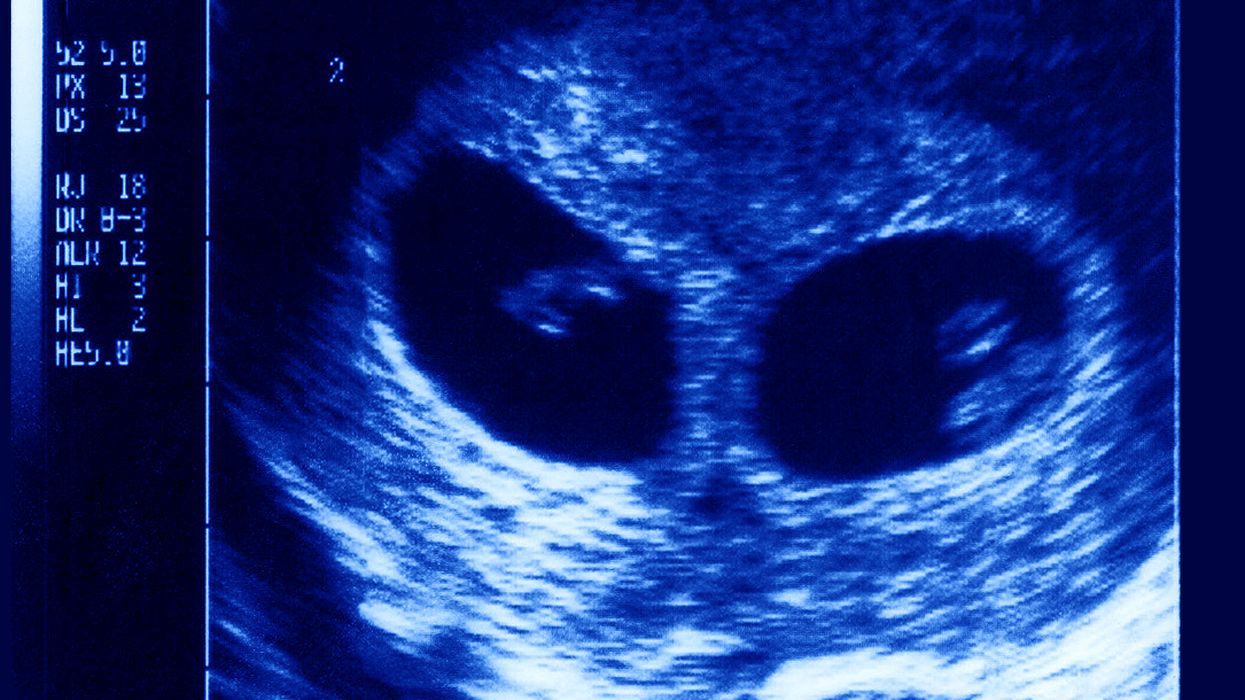
An ultrasound image of fraternal twins at end of the first trimester. (Photo By BSIP/UIG Via Getty Images)

Doctors gave them no chance of survival
Parents who were pressured by doctors for months to abort their twins early in pregnancy due to a medical complication are now the proud parents of healthy toddlers, and can't imagine what life would've been like had they given up, according to The Sun.
Hannah Johnson and Mark King found out they were expecting twins in January 2016. About four months into the pregnancy, however, Johnson's water broke prematurely.
She was diagnosed with a condition called preterm premature rupture of the membranes, also known as PPROM, which is a condition that can be caused by infection.
Johnson believes that her PPROM was caused because her midwife failed to properly treat an E. Coli infection that was diagnosed about a month earlier. The midwife opted to let her body fight the infection rather than treating it with antibiotics, Johnson said.
Once Johnson's water broke, the doctors told them there was nothing they could do, and that there was a 100 percent chance that the twins wouldn't survive. The doctors wanted Johnson to terminate the pregnancy immediately.
When Johnson and King decided they didn't want to medically abort the twins, Johnson said the doctors put them in a room at the hospital for 48 hours, leaving them "to miscarry our children."
But that didn't happen.
Johnson and King were able to go home after tests showed the babies were still healthy after two days. And week after week when they went back to the doctor, the twins continued to develop normally, defying the odds.
Johnson had put herself on bedrest and was drinking extraordinary amounts of water to help her twins survive, even while the doctors continued telling them that, despite the positive scans, eventually the twins would die before birth.
"[The doctors said] I was only causing them more pain by carrying on with the pregnancy," Johnson told The Sun. "We were considering at this point terminating the pregnancies because this was coming from top consultants."
The twin boys were born at 34 weeks — George weighed 5 pounds, 4 ounces and Alfie weighed 4 pounds, 1 ounce. They spent four days in NICU. George had a compromised immune system and Alfie had holes in his heart. But now, they're normal, healthy children.
"They had defeated all odds and they were strong, healthy little boys," Johnson said. "They are now so cheeky and you look at them and think, wow, you nearly weren't here. What would my life have been like if I hadn't had them? They are both amazing."
PPROM is a condition that occurs in approximately 2 percent of pregnancies when the amniotic sac is ruptured before 37 weeks. Once that happens, there is a high risk of infection or premature labor.
It is rare that PPROM cases that occur as early as Johnson's result in successful births, but Johnson chose not to give up and her children are an example showing that PPROM is not a death sentence.
"All too often [parents] are told there is no hope and their only option is to terminate, but babies can and do survive this," said Ciara Curran, founder of the volunteer organization Little Heartbeats. "If women are supported to continue their pregnancy, with good medical management, there is a chance that they will be able to bring home a surviving baby."
(H/T LifeNews.com)